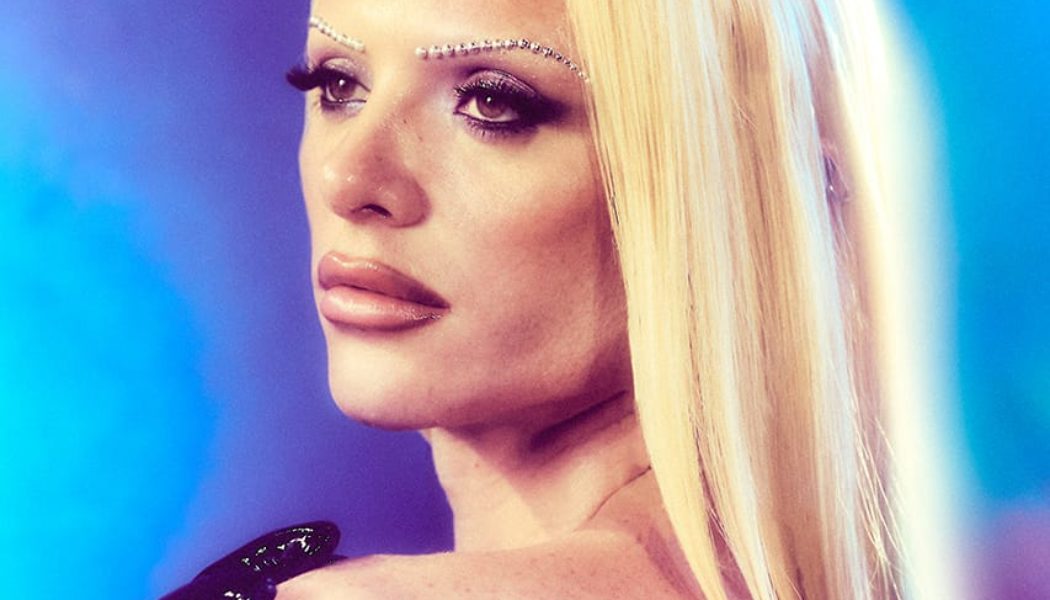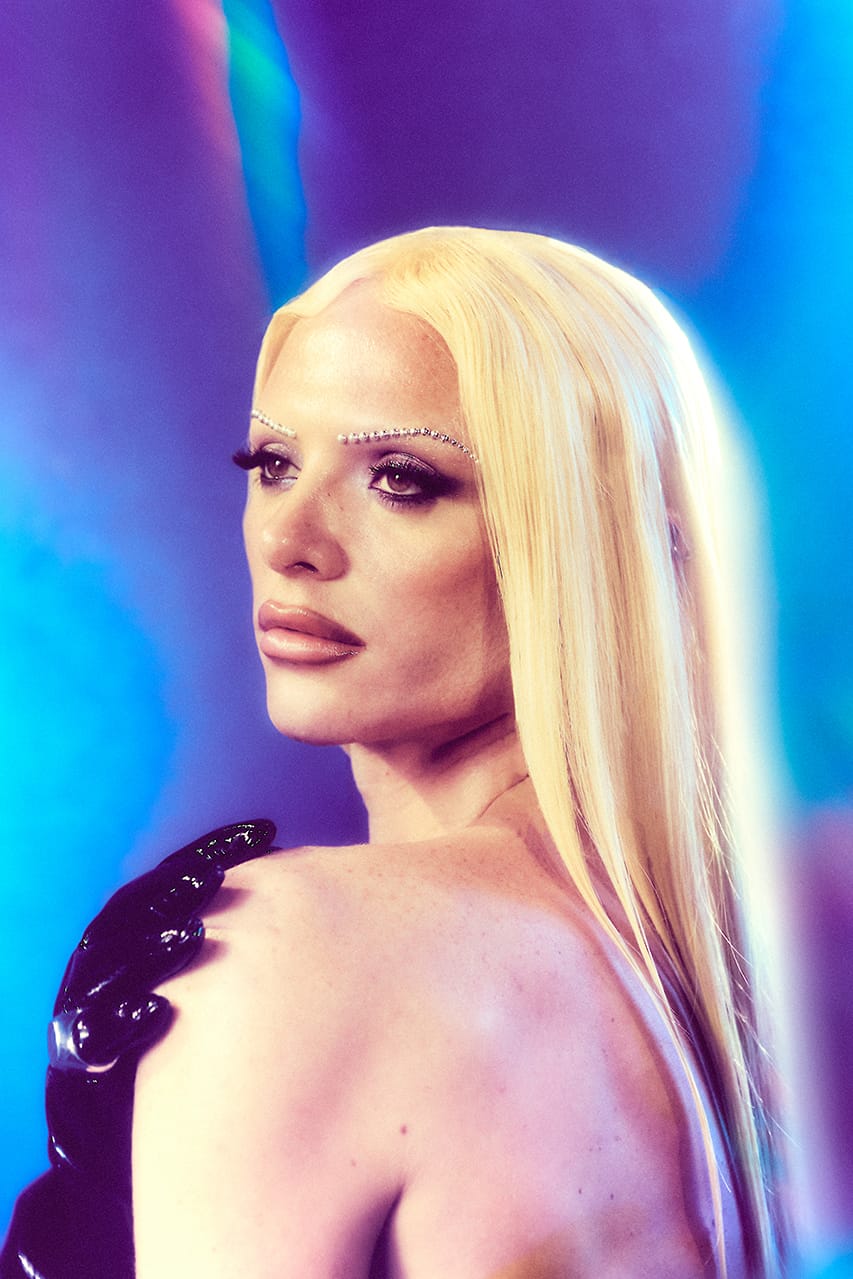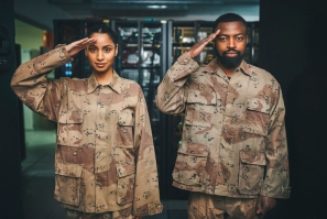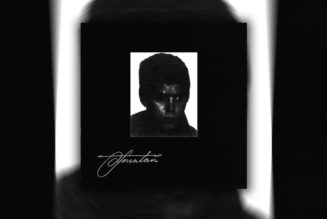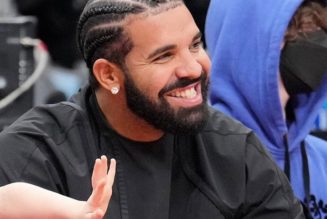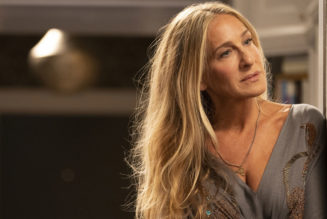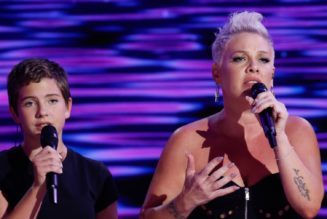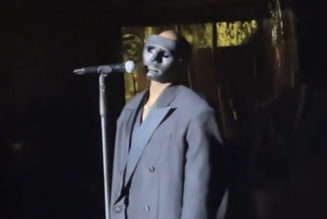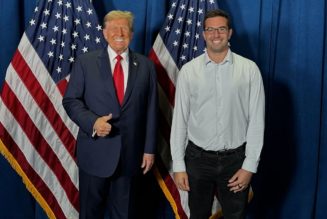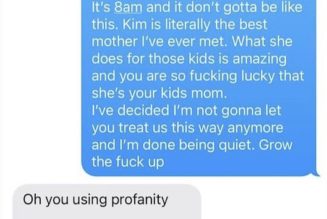We’re waiting for RuPaul’s Drag Race UK star, fashion icon, author, model, political and Queer activist, and now, recording artist Bimini to join us on the call. Then “Ello! You alright babes?” rings down the line, and we immediately knew were in good company.
Bimini has an infectious quality. It’s what made them a standout, among many other talents they possess, on the BBC Three drag competition show two years ago – earning the title of Miss Congeniality, no less. And as is no secret, once you’re on the world’s biggest drag stage, it’s only up from there.
With newfound fame comes hoards of fans, TikTok dance routines based on the legendary lipsync for your life challenges and “going out-out” looks based on the Queens’ often jaw-dropping ensembles. However, Bimini was one of the few Queens to take this to the next level – just as they did with their performances and looks on the show.
Bimini is a seasoned fashionphile known for their love for all things British. Bimini’s extensive and obsessive collection, includes hordes of Vivienne Westwood alongside plenty of punk and subversive such as outfits inspired by London club scene icon Princess Julia, with John Galliano and Iris Van Herpen among the names filling up the rest of their wardrobe.
Fashion accomplished, Bimini soon set their sights on conquering one of their biggest loves: music. Fast forward to today, July 14, 2023, and Bimini is ready to drop their debut EP, When The Party Ends.
Like fashion, music too can be political, subjective, performative, provocative, emotional, and used as a catalyst to paint pictures and tell stories. Growing up working class in the sleepy British seaside town called Great Yarmouth, the influences of their parent’s music taste also feed into their sonics – with The Streets, and their rebellious nature, a big influence on the new six-song project.
The EP is hedonistic and nostalgic at the same time – and there are lots of contrasts throughout the project. Upbeat drum’n’bass rings out heavily alongside intimate explorations of Bimini’s youth and personal politics – but it’s this range of emotions that gives everyone something to relate to. Late nights and one too many? 2 a.m. in the back of your mate’s car blasting down a country lane? Breakups, freedom, pain, joy? It’s all there – laid bare in a manner Bimini has never done before.
Ahead of the launch of their debut EP, we spoke to Bimini to understand more about where they get their influences and why now is the time to disrupt industry norms.
Hypebeast: What was it like being a young Queer person in Great Yarmouth?
Bimini: I grew up in a household that mixed eccentric Londoners with crazy Scottish [people], so I had a cool mix of people and influences growing up. But with a small town comes small minds – but I don’t want to slate Yarmouth, my family is from there and I love it there, it’s a beautiful place. I was really lucky with my friends in school and the people I met; people got me because I think I was from a time when perceptions about queerness and identity were changing. Even though I got a bit of shit in the streets, I was always quite rough and ready.
I’d argue back – I was rebellious in that sense.
And was it this that encouraged you to pursue your dreams in London?
I always said from a young age that I would move to London because I had a fixation with it. There was something seductive about it, something drew me into the idea of it.
I grew up in a town that was a predominantly working-class place with a very high Conservative vote. I never understood that – it was a real juxtaposition for me, I was the opposite of that.
I performed as a kid, I danced as I got older and I went to stage school. But I stopped that in my teens because of peer pressure and a bit of bullying – people would say stuff and I was insecure at that time, so I stopped a lot of what I wanted to do. But I saw Queerness for the first time on stage when I moved to London. I remember seeing it in the flesh – these were my people.
Did this rebellion help to form the multi-hyphenate artist you’ve become?
Yeah, I’d say so! I’ve been lucky to be surrounded by open-minded parents, they were quite liberal and open. When I did see Queerness in London, it didn’t take me long to start dressing up and going out in East London… It was probably about a month after moving here that I had a wig and heels on! Haha!
“I’ve always been the person to tell a story and to put political narratives into performances. I use fashion as a way of doing that, and music is another tool to access this.”
I’d put pictures on Facebook. My mum, who owns a hair salon back home, would have people come in and say to her: “How do you feel about this? You must be so devastated!” My mum would always say, “No, I’m really proud of them for doing that.” So I was very lucky with that, to have that strong foundation of a hard-working, grafting working-class family, that accepted me and let me do anything.
How does this backstory play into you as a drag artist?
I loved drag. I did it when I first came to London, but then I took a break and went traveling. Once I finished my Journalism degree I got back into drag. It was a way that I saw Queerness being in a performative setting, seeing larger-than-life characters on stage and owning their performance by being funny or political. I wanted to do that, it was a way to get on stage. I was lip-syncing and putting looks together, and everything snowballed from there.
Of course, as you were on RuPaul’s Drag Race UK.
I was on the show, but during the duration, I was also making music in the studio. That’s how the music began. It was something that I always wanted to do, but I didn’t believe that I could do it.
I didn’t want to rush the music. I wanted people to take it seriously, to listen to the music and to respect it, in a way.
There is a stereotype that drag queens release music that isn’t so
serious, or is destined for the gay bar. But your work is different – you’re a recording artist by the very definition of the term.
I’ve always been the person to tell a story and to put political narratives into performances. I use fashion as a way of doing that, and music is another tool to access this.
This EP has been ready for a minute! These tracks were probably completed last summer, so I’ve been working on so much more music since then. When I hear it back, it was a space that I was in then. That’s an amazing thing to have – a time capsule of how I was feeling, where I was at that time, and where I’m at now.
The order of the songs takes you on a journey of being in the party world and having a good time, but then I got caught up in it. I’m always fully authentic and real when it comes to the stories that I tell. The track “Sex Drugs Disco” is obviously very provocative, for some people it might be controversial, but it’s real. It’s authentic and true to me.
With Drag Race, I love a lot of the music that comes from it, but that wasn’t the music that I would listen to. I love a catdidicatcatcak, but I grew up listening to The Streets, Lily Allen and The Prodigy, Arctic Monkeys, and people in the UK that were “real British.” And obviously the big pop divas like Britney Spears! But I wanted to bring that Britishness into my music.
This is one theme to your music, but it’s met with the Queer experience, which is something every Queer person can relate to. There are damaging moments, and fun moments. Why is it necessary for you to tell these experiences?
When you hear music you want it to evoke something, a certain feeling or emotion that brings relatability to it. I hope for this EP, even if it’s just one song that people like the most, that there’s something in it that goes with everything. There are upbeat and fun tracks, then there’s hedonism, and then there’s relationships, breakups, and vulnerability. It’s important to get that across in music because, without a story or a point of view, it can just be a bit reductive.
I want there to be a narrative.
How did you create this EP?
It’s been a long time in the making. I didn’t just want to put out music, I wanted to take my time. I really wanted to hone my sound – I was in the studio every time I was off and not working.
I’ve written [most of] the songs and produced them with Redshank – we spent so much time just working on the sound, going through styles and genres and references from sounds that I love before we got to the song, “Rodeo.” This euphoric dance sad banger world was something I really enjoy.
We played in that world. “When The Party Ends” was the next song from “Rodeo,” and then “Don’t F*ck With My Groove.” It was a journey. I had just split up with my boyfriend at the time (that’s what “When The Party Ends” is about), and “Rodeo” reflects on the breakup as well, and “Don’t F*ck With My Groove” was about being single and having a great time with my friends, wanting this fun disco-y sound.
“I hope people realize that I’m not here to play. I have put a lot of work and my heart and soul into these lyrics, telling true stories that I’m not afraid about.”
But then “Sex Drugs Disco” came. It was the first song that we reproduced – before, it sounded like a track from Lily Allen’s second album, we actually wanted her on it as someone who is now sober but had partied. The voice of reason. But it didn’t happen in the end.
Getting to this place with the EP… I’m really happy with it and I am excited to get it out into the world. Ending on “Don’t F*ck With My Groove” sets up where we’re going next.
I want to go back to your influences – The Prodigy and The Streets, for example, are evident in your sound. Those themes lean into your raw introspectiveness…
For sure. Hearing the tracks live and performing them with the brand really brings them to life. Especially “Sex Drugs Disco,” people pick that up instantly and shout the chorus back. It’s a real release. There are songs that are drum n bass, but have an alt-pop edge with poignant lyrics about real stuff.
We’ve all been to a party where we probably should have gone home hours ago, conversations are getting boring, and everyone’s repeating themselves. That’s just telling a story we’ve been through, and I hope people relate to it.
There’s a lot of depth to these six songs – they explore Queerness and politics, but are still relatable to all.
I believe music is for everyone! I think if you hear a track like “On Pause,” I purposely leave out anything to do with gender. I don’t mention anything about [the subject being] male, female, or gender-non-conforming. It’s a track for everyone.
There’s a flow that sounds a bit The Streets-y, and I feel people wouldn’t expect that from me. That’s what I love – I love the subversion of that, the really gritty British tracks and dance songs, but its from someone who was on Drag Race. The music has allowed me to evolve into me, but as more of an artist, seeing the world through a musical lens. I just hope people listen to it and think, “OK, this person has a point of view.”
Your references were liberating for their time. Do you hope your EP does the same for your audience?
I hope people realize that I’m not here to play. I have put a lot of work and my heart and soul into these lyrics, telling true stories that I’m not afraid about.
I am not one to hide behind anything. I have taken a lot of drugs in the past and it’s f*cked up a lot of relationships. I’ve gone through the highs and the lows, I have experienced sobriety and I’ve come off that. I want to be true to those things and tell the story of what I have been through and what’s to come.
